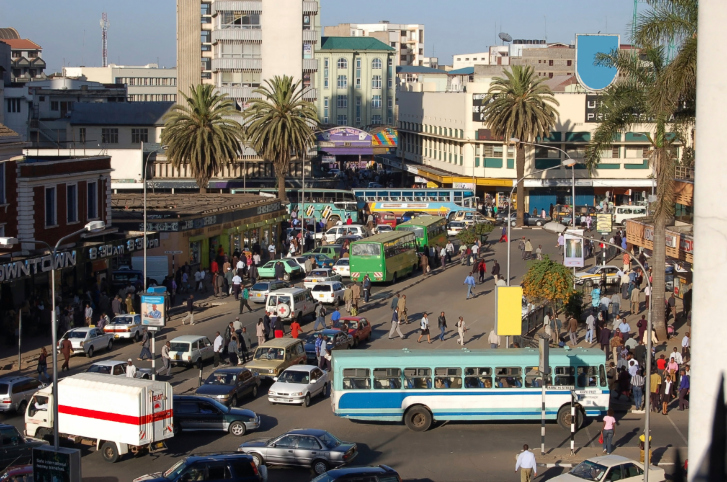
Al-Shabaab claims a tie to al-Qaeda and has been trying to consolidate its position in southern Somalia since 2011, when a U.N. force drove it out of the capital city of Mogadishu which the militant group had controlled since 2002.The fighting between al-Shabaab and Kenya began in late 2011 when Kenyan forces intervened in southern Somalia.
Kenya’s gross domestic product last year totaled $37.2 billion, smaller than all but one U.S. state, and ranked 87th of 214 countries according to World Bank data. That’s also below 63rd-ranked Syria, another current global hot spot. Kenya’s population totals about 43.2 million, almost double Syria’s 22 million.
Unlike Syria, however, Kenya’s GDP is growing. In fact, the government has forecasted 6% growth in 2013 — among the largest in the world. Inflation is close to the government’s 5% target and recent discoveries of oil and natural gas in the country have raised prospects even higher. To date though, no oil is being pumped and there is little infrastructure to get the crude out of the country.
The attack on the Westgate mall in Nairobi could impact Kenya’s tourism business, which is the second leading generator of the country’s foreign exchange credits and had already fallen by 12.2% in the first six months of this year. Tourism accounted for about $1.1 billion in revenue for Kenya in the fiscal year just ended, down from about $1.2 billion in the prior year. Bookings for the second-half of the year are down as well.
The most immediate threat to Kenya’s economy from the al-Shabaab attacks is that the country’s tourism industry will contract even more. But the threat to Kenya’s barely nascent energy industry could become significant soon.
The country runs an annual trade deficit of about $8.8 billion and its main exports are agricultural products including tea and coffee. Its main imports are machinery and transportation equipment, petroleum products, motor vehicles, and other manufactured goods. About 24% of the population works in agriculture and 61% works in services such as tourism.
According to the most recent estimates from the CIA World Factbook, the unemployment rate for the country is 40% and half the population lives in poverty. Kenya’s population is expected to grow from 43 million to 67 million by 2030, according to the International Monetary Fund. At that rate, the country will add 27 million new jobs, or about 112,500 jobs a month for the next 17 years.
The government expects its middle class will expand enough by 2030 to pull the country’s status up to that of a middle-class nation. The African Development Bank estimates that the number of middle class Africans has tripled in the past 30 years and now makes up more than one-third of the continent’s population. The bank estimates that 17% of Kenyans are middle class, defined in 2012 as having an annual of more than $3,900.
Much of the country’s growth — if it is realized — will have to come from the oil and gas deposits that have been discovered in the past year or so. By one estimate, Kenya is sitting on 10 billion barrels of oil in place. British oil firm Tullow Oil estimates one field in northern Kenya at 250 million barrels, but the field lies in disputed territory, with Ethiopia, Uganda, and South Sudan all making claims to the region. Crude oil exports are predicted to begin in 2016 and Kenya is expected quickly to overtake Uganda as East Africa’s leading supplier of crude.
Exploration for natural gas has been less active, but recent discoveries along the coast of East Africa make it quite likely that exploitable deposits exist offshore of Kenya. Tanzania, which borders Kenya on the south, has an estimated 41.7 trillion cubic feet of gas in offshore deposits, while Mozambique, which borders Tanzania to the south, holds an estimated 87 trillion cubic feet of natural gas.
Cash Back Credit Cards Have Never Been This Good
Credit card companies are at war, handing out free rewards and benefits to win the best customers. A good cash back card can be worth thousands of dollars a year in free money, not to mention other perks like travel, insurance, and access to fancy lounges. See our top picks for the best credit cards today. You won’t want to miss some of these offers.
Flywheel Publishing has partnered with CardRatings for our coverage of credit card products. Flywheel Publishing and CardRatings may receive a commission from card issuers.
Thank you for reading! Have some feedback for us?
Contact the 24/7 Wall St. editorial team.


